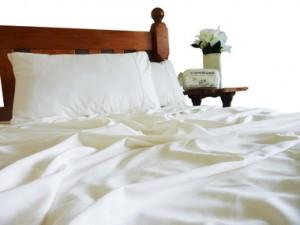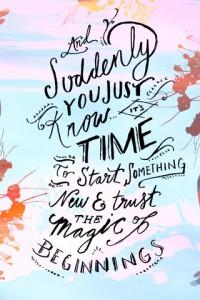Because sleep is SO important to your strong immune system – and because so many people have trouble sleeping – we're sharing with you here Day One of our Three Day Sleep-Eat-Energy mini-course.
Medical experts say people with weakened immune systems – who are “immunocompromised” – are more likely to experience serious complications if they contract cv.
A compromised immune system may be caused by certain diseases or conditions, such as heart disease, cancer, diabetes, lung disease, smoking, excess alcohol, some prescription drugs, and poor nutrition.
The immune system also tends to get weaker with age unless steps are taken to protect it.
Simple steps to reduce your risk of contracting Covid-19 including, getting enough sleep. Research shows that sleep-deprived people can have suppressed immunity, meaning that they’re more at risk of getting sick.
So, how many hours of sleep do we need to reap the benefits? Most adults aged 26 to 64 years need about seven to nine hours of sleep per night, while those aged 65 or older need seven to eight hours of sleep per night to feel rested and alert. Getting a good night’s sleep is one of the reasons so many people take Health Evolution formulas: the cortisol-balancing benefits
ARE YOU READY TO SLEEP BETTER?
A great advantage of traveling has to be the chance to read more. Arianna Huffington, founder of famous The Huffington Post, wrote a great book called Thrive a while ago and I re-read this while in the French Alps.
A big aspect of Arianna's philosophy for living your best life is to get enough sleep, and she has a particular sleep routine:
Every night, she reserves a specific amount of time to wind down, turning off all her devices 30 minutes prior to bedtime and charging them outside the bedroom.
Next, she takes a hot bath, which “washes away the day, slows down my brain, and winds down my body.”
She opts for pyjamas and only reads physical books that “have nothing to do with work” like poetry, philosophy, or fiction.
Before going to sleep, Arianna takes the time to write down three things she's thankful for that day. We know that ending the day with positive thinking makes for better sleep, she says, and helps cut down on anxious dreams or wakefulness.
Arianna’s message is, “We need to make sleep something that's welcoming.”So let's “dive in” to find out more about how you can harness the advantages of sleeping well.Our bodies run on electricity. Everything that happens in your body is through tiny electrical impulses.Scientific fact. So it makes sense that we need to recharge.
Recharging a human happens principally through sleep. And today, that’s the single biggest problem
.
If you sometimes wake up groggy and unrefreshed instead of jumping out of bed before dawn full of energy… you’re not alone.You need your sleep to recharge and revitalise you.
But in our fast-paced, hectic, distracting world that can be easier said than done.
Today’s the day we’re going to change that, together.

To begin, we’re going to look at your physical environment. Since time began, mankind has strived to create a nurturing home. Whether it was in a cave, a forest or out in the open with a tipi, teepee, chum, goat, hogan, igloo or lava, sleeping arrangements were designed for comfort and quiet.
Beauty isn’t just skin deep and beauty sleep is needed inside and out if you want to live like it’s heaven on earth.
Low-grade tissue inflammation has been increasingly linked to a range of unhealthiness, with heart disease high on the list.
Science tells us that sleep is a lot like a bank account. You can overdraw on your account for a while long as you replenish it with fresh funds. This is known as “paying off your sleep debt.” But lack of sleep is known to influence your attention and productivity, stress, happiness, inclination to inflammation and disease.
You can’t just reverse the negative effects of minimal sleep with catch-up sleep, unfortunately.
Analysis shows that six nights of sleep deprivation have a negative effect on attention, daytime sleepiness, and inflammation as measured by blood levels of interleukin-6 (IL-6), a biomarker for tissue inflammation throughout the body. Even after catch-up sleep, attention levels which dropped significantly during the sleep-deprivation period don’t return to baseline.
Minimal sleep isn’t just a hindrance, it’s dangerous, and studies tell us that sleeping heavily on the weekends won’t renew it.
When we look at the stress hormone cortisol, research shows a strong connection between cortisol and sleep; the less sleep we get, the higher the level of the stress hormone circulating in our bodies, and that carries its own set of health dangers.
So you’re absolutely right to pay attention to making sure you Sleep Better.
Catch-up sleep helps us pay off some but by no means all of our sleep debt. What does this mean if you can’t sleep: is it because you’re trying to get too much done and are burning the candle at both ends – or maybe you just can’t get to sleep and enjoy that deep, undisturbed, restorative sleep you need?
In just one day, we’re going to look at the step by step process to get this just right for you, so you can get the full amount of time you need and properly benefit so you can at last wake refreshed:
1. WHAT’S YOUR SLEEP SCHEDULE?
It’s just not possible to go to bed and get up at the same time every day, even on weekends, holidays and days off. But it’s also not possible to survive healthily on four hours sleep a night – I know, I’ve tried!
The key is going to bed early – and that takes some planning.
Being consistent reinforces your body’s sleep-wake cycle and helps promote better sleep at night.
There’s a caveat, though. If you don’t fall asleep within about 15 minutes, get up and do something relaxing – and boring. Doing the ironing is the sort of slow, contemplative, meditative, downright dull task: keep the lights dim and the electronic screens off. Don’t reward yourself with tv, YouTube, Facebook or any other screentime when you know you’d be better off sleeping.
Go back to bed when you’re tired.
Let’s look at where you sleep.
This isn’t academic theory – let’s go right now to your bedroom… You can read this on your phone or tablet, so go on, take me with you…
Are we there yet? Let’s go to your bedroom.
Now that we’re here, how good’s it going to be for when you want to get to sleep tonight?
Can you make your room cool, dark and quiet? Maybe you have blackout blinds or beautifully thick curtains… if not, consider getting some or just using earplugs.
Check the temperature.
The best sleeping temperature for most adults is 60 to 72 degrees Fahrenheit (15 to 22 degrees Celsius).
The ideal temperature for elderly people is around 66 to 70°F (19-21°C). It is also good to keep the living room and bedroom temperature consistent with each other.
The perfect temperature for baby’s room should be slightly cooler around 65 to 70 degrees Fahrenheit (18 to 21 degrees Celsius).
A lot will depend on your personal preferences. Some people naturally sleep hot and others sleep cold. It’s perfectly normal to go below or above these recommended numbers to what makes you feel most comfortable.
Don’t know what temperature your room is? You can just buy a thermometer for a few dollars or pounds from your pharmacy or chemist, if you don’t have one. Or use an app on your phone.
A shower or bath before bed can help you sleep better by adjusting your body temperature.
While we’re in the bedroom together, let’s take a look at your bed. The mattress and pillows and linen are all really important.
So let’s take five minutes to change your bed: strip everything off, put the pillows outside or by a window to air, and grab the hoover. Give the mattress a quick hoover. Seriously. All that dust and body debris isn’t good for you. If you can, turn it over and around, so you’re not always sleeping in the same spot.
Now, leave your bed to air for a while. You really shouldn’t make your bed every morning! Instead, pull the covers right back, move the pillows to a window and allow it to air.

When you come home from work or just before you make dinner, that’s the time to make your bed.
Seeing as how you’ve changed your bed linen today, that’s when you’ll put on a quilted mattress protector and make your bed with nice fresh linen, two pillow cases on the pillows, and see how inviting that looks.
Organic cotton or bamboo bed linen is really comfortable and healthy.
If you have children or pets, try to set limits on how often they sleep with you — ideally they’ll have their own beds.
Now, let’s open up the windows and get some fresh air in the room. It’s a good plan to open these first thing every morning and close them up again around midday if you’re home.
What else can you see? Ideally not too much: a calm uncluttered bedroom helps you have a calm uncluttered mind and a better night’s sleep. At the very least, empty off your bedside table a minute, wipe down the surfaces then just put back what you need, nothing more.
If you can, put everything else out of sight, inside cupboards, drawers or in the bathroom or elsewhere. Definitely don’t have any shoes in your bedroom – it’s bad news in Feng Shui terms. Seriously! For good Feng Shui, shoes and boots should always be stored away to trap the negative qi they bring.
Particularly make sure you have nothing negative stored in the bedroom like old divorce papers, bills or other problems…
On the other hand, see if you can find a photo or two of you and your partner or best friend to put in the south-east area of the bedroom.
So if your room’s looking calm and inviting now, and you’ve removed as much dirt and clutter as you can, let’s close the door and leave your room ready to receive you at bedtime. If it’s already late in the day, a tip is to switch on your bedside lamp (make sure it has only a dim, low energy light bulb) and draw the curtains: do you see how inviting that looks?
If you have a garden or flowering plants, you can put a petal or blossom on your pillow. You want to be nicer to yourself than you are to anyone else, so don’t feel embarrassed about a little treat like this. The secret is to leave your bedroom ready for you, so you can look forward to coming here when it’s time to sleep.
2. ARE YOU FUELLED FOR SLEEP?
What you’re going to eat today will affect how you sleep. Too often, we eat so late that our poor bodies are working overtime trying to digest when we could be regenerating and recharging.
So this takes a little thought. We’re going to be talking more about Eating Well tomorrow but it’s important to your sleeping ability so it’s worth a quick word now.
You’re going to want to drink as much water as you can today, but have most of it before dinner for obvious reasons. Talking of dinner, what’s the earliest you can eat tonight? Sometime between 5-6pm is ideal if you can… just bear in mind that the later you eat, the less you want to have on your plate.
If you’re lacking in nutrients, this will contribute to the stress hormone cortisol in your body. Foods are either healing or harming your body so bear in mind that “clean” plant-based and unprocessed foods are going to help you sleep much more than the opposite.
Our Health Evolution supplements ensure you get the nutrients you need.
Make sure that you don’t take supplements – or any food – too late at night. Especially sugar – which of course includes alcohol.
3. CREATE A BEDTIME RITUAL
So we’ve prepared your bedroom… and know the best way to do that every day.
Doing the same things each night tells your brain and body that it’s time to wind down. We humans have been around for about 200,000 years but the planet’s millions of years old and like all non-nocturnal living things we have evolved to get sleepy when it becomes dark and quiet. There’s a bit of a clue there. No point fighting biology.
So your evening ritual tonight might include eating early, having some time with your partner, family or friends, then taking from around 9 o’clock to look after yourself and wind down.
Switch off anything electronic by 9pm – put your phone on charge (not inside your bedroom!) and make a note in your diary about anything else you need to deal with tomorrow. Research suggests that video, tv and even phone calls engage the brain and can release hormones such as adrenaline. All of which makes it more difficult to get your best sleep.
Exposure to screentime light emissions in the important evening hours before sleep can increase alertness.
Bright light at night disrupts the body’s naturally occurring circadian (or daily) rhythms by suppressing the release of the hormone melatonin, which is important for maintaining and regulating our sleep-wake cycle.
So put the screens to bed before you and instead maybe it’s a good time to take a bath or shower, put on some restful music, turn down the lights.
Relaxing activities promote better sleep by easing your transition between wakefulness and drowsiness.
You can keep some lavender oil or Bachs Rescue Remedy by your bed: dabbing some lavender oil on your pillow and a spray of Bachs Rescue Remedy for yourself can help.
Ingredients in our formulas are clinically proven to reduce cortisol – the stress hormone – which is why our customers sleep better.
4. MEDITATE
Studies suggest that mindfulness meditation help with sleep. These mind-calming practices focus on breathing and awareness of the present moment.
People who practice mindfulness and meditation typically have less insomnia, fatigue and depression.
Dr. Herbert Benson of the Harvard-affiliated Benson-Henry Institute for Mind Body Medicine says,
“Mindfulness meditation is just one of a smorgasbord of techniques that evoke the relaxation response.”
The relaxation response is a deep physiological shift in the body that’s the opposite of the stress response. The relaxation response can help ease many stress-related ailments, including depression, pain, and high blood pressure. For many people, sleep disorders are closely tied to stress, says Dr. Benson.
Meditation involves focusing on your breathing and then bringing your mind’s attention to the present without drifting into concerns about the past or future. It helps you break the train of your everyday thoughts to evoke the relaxation response, using whatever technique feels right to you.
Dr. Benson recommends practicing mindfulness during the day, ideally for 20 minutes.
“The idea is to create a reflex to more easily bring forth a sense of relaxation,” he says. That way, it’s easier to evoke the relaxation response at night if you can’t sleep. In fact, the relaxation response works so well that your daytime practice should be done sitting up or moving, such as doing yoga, tai chi, gardening or taking a walk, so you don’t fall asleep!
In fact, the relaxation response works so well that your daytime practice should be done sitting up or moving, such as doing yoga, tai chi, gardening or taking a walk, so you don’t fall asleep!
Follow these two simple steps to be mindful
Step 1: Choose a calming focus such as your breath, looking at a candle, or making a sound. There’s a reason that meditators say Om, which we go into during the Quantum Health Hacks 21 Day Challenge. If you choose a sound, you can repeat it aloud or silently as you inhale or exhale.
Step 2: Let go and relax – and if your mind wanders, just take a deep breath to refocus.
To learn more about mindfulness meditation, try one of the free guided recordings by Dr. Ronald Siegel, an assistant professor of psychology at Harvard Medical School and faculty editor of the Positive Psychology Special Health Report. The recordings are available at www.mindfulness-solution.com.
And see Vishen Lakhiani's excellent Six Phase Guided Meditation here.
5. GET MORE SUNLIGHT
Even if you’re really tired, don’t be tempted to take a late daytime nap. These seriously interfere with night-time sleep especially if you’re struggling with insomnia or poor sleep quality at night. If you need a nap, take a cat-nap of 10 to 20 minutes. If you’re desperate for longer, take a stretch of 90 minutes – but not after 3pm.
Of course, if you work nights, you’ll need to make an exception to the rules about daytime sleeping. In this case, follow all these guidelines but change the hours, obviously. You’ll have to work harder at limiting the daylight and activity before you sleep because otherwise the noise and sunlight will affect your internal clock and interrupt your daytime sleep.
Talking of sunshine, most people are seriously deficient in Vitamins D and K. So at least get outside in the sun for a while, every day. Even overcast days are beneficial. In the northern hemisphere, aim to be outside at midday when the sun is strongest.

For your body to produce sufficient amounts of vitamin D, you want to expose as much of your body as possible to sunlight until your skin turns the lightest shade of pink. Not always very practical! So when you get the chance to be in the sun, grab it!
Here in Australia we have ample sun – my daughter wears sunscreen rowing at 5am in the morning! But coming from the UK I know how hard it is to get enough sunshine.
It’s worth getting outside first thing in the morning if you can, and again at lunchtime in the northern hemisphere, just to get those rays.
6. GET UP EARLY AND GET PHYSICAL
Talking of getting outside, there’s a lot of evidence that regular physical activity can help you to fall asleep faster and enjoy deeper sleep. Don’t exercise too close to bedtime, though, as you might be too energised to fall asleep. Gentle stretching in the evenings can help, especially if you haven’t made time to get active earlier in the day.
It may seem counter-intuitive when you’re tired, but getting up early really helps sleeplessness.
A friend of mine says that he “doesn’t let the sun beat me out of bed”. It’s true that the sunrise is spectacular most mornings, and most of us miss it! When we first moved to Australia, I remember David saying, “What’s wrong with these people: don’t they know there’s only one 5 o’clock and that’s gin and tonic time?” The coffee shops and beaches are buzzing with people here at that time in the morning. Now, we’ve
When we first moved to Australia, I remember David saying, “What’s wrong with these people: don’t they know there’s only one 5 o’clock and that’s gin and tonic time?” The coffee shops and beaches are buzzing with people here at that time in the morning. Now, we’ve acclimatized too and love the early mornings: just as well, as our daughter’s a rower so is on the water just after 5 several mornings a week.
Now, we’ve acclimatized too and love the early mornings: just as well, as our daughter’s a rower and on the water just after 5am several mornings a week.
I’m not saying you have to get up early – but if you can’t sleep any time after 4am, get up and thrill to having the day to yourself, watching the dawn, finding the magic while the rest of the house is asleep.
Early rising makes it easier to fall asleep too, of course, because you’re going to have had a long day and are more likely to benefit from those most restorative hours of sleep, before midnight.
If you need any more convincing, here’s an important report about the health risks of going to bed too late.
7. MANAGE STRESS
This is the big one. When you have too much to do and your mind won’t switch off, your sleep will definitely suffer. There are a few things we can cover today to really help you:
If you don’t already keep a paper diary, I really recommend getting one. At night, instead of my phone by my bed (I charge that in the hall instead), I have my diary and a pen.
The secret is to write down anything that’s recurring in your mind – either today to deal with, or tomorrow, or any day you know you can get to it. Having a diary with daily, weekly, monthly and yearly planning sections really helps: of course I use an online calendar and meeting scheduler too.
Finally, know when to contact a medical professional. If you don’t get on with your doctor, find yourself a new one. You wouldn’t run a car without a regular service so don’t expect your mind and body to cope without expert help.
I’m a huge fan of having professionals to deal with the important parts of your life. Often our worries are unresolved question – “loose ends” which tie us up in knots. Whether it’s your doctor, dentist, naturopath, lawyer, accountant, coach or mentor, just get good people around you and delegate your worries to them so they get resolved.
Yes, you can put your worries to bed too! And take it easy on yourself.
So there you go. Seven Steps To Sleep Better. Do all or some of these today.
Have a great day and an even better night.
Please note that we are not giving health advice. This is lifestyle information. You should always consult your health care professional before making changes. The information provided here is for informational purposes only and is not intended as a substitute for advice from your physician or other health care professional or any information contained on or in any product label or packaging. You should not use this information for diagnosis or treatment of any health problem or for prescription of any medication or other treatment. Always consult with a healthcare professional before starting any diet, exercise or supplementation program, before taking any medication, or if you have or suspect you might have a health problem. You should not stop taking any medication without first consulting your physician. Results featured on our websites can be atypical. As individuals differ, so will results. Get Your Boom! Back distributes a product line made with natural ingredients. Always check with your doctor for risks associated with dietary supplements and your specific health conditions and/or allergies.


